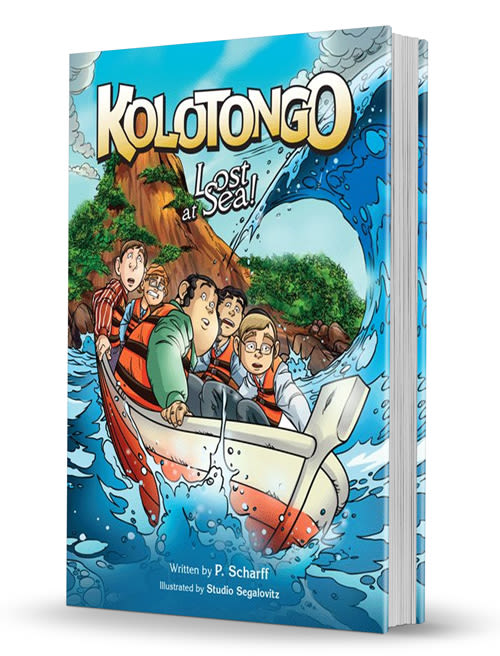
Noach: Partners With Hashem
We have a responsibility to ween ourselves away from the selfish child within us in order to become partners with Hashem in perfecting the world.

Parshat Noach
Certain topics are difficult to discuss and difficult not to discuss.
The major theme of this week's Parsha is Noah and the flood. The entire generation was slated for destruction because of their serious transgressions. Hashem decreed to wipe out the entire inhabited world.
On the one hand, to provide definitive insights on this cataclysm is truly beyond my abilities. On the other, since the Torah presents this story for us to learn from, it feels almost negligent and dishonest not to at least attempt to come to terms with the enormity of what transpired.
How are we to understand the transgressions and devastation of Noah's generation?
The Mishna in Ethics of our Fathers gives us an historical overview of mankind from Adam until Noah's time. "There were ten generations from Adam until Noah which teaches the degree of His patience. Even though all those generations increasingly angered Him, even so, He delayed repaying them until He  brought upon them the waters of the Flood." The simple explanation is clear from the Torah's portrayal of these generations. Their involvement in idol worship, murder, and adultery became deeper and deeper until there was no hope that they would live a life of decency and morality so essential for the maintenance of the world. They had basically eaten each other up alive, so the flood was just a way to shorten the pain of the inevitable demise of mankind.
brought upon them the waters of the Flood." The simple explanation is clear from the Torah's portrayal of these generations. Their involvement in idol worship, murder, and adultery became deeper and deeper until there was no hope that they would live a life of decency and morality so essential for the maintenance of the world. They had basically eaten each other up alive, so the flood was just a way to shorten the pain of the inevitable demise of mankind.
However, there is an entirely different level to this story that we need to understand in order to fully grasp the tragedy of the flood. The great seventeenth century kabbalist Rabbi Moshe Chaim Luzzatto explained that Hashem created the world in order to bestow His goodness upon mankind. An essential part of Hashem's plan of creation was that this goodness shouldn't take the form of an undeserved handout. Instead, Hashem decreed that blessing for this world would come about only through the joint efforts of mankind working together with the Creator. A life of morality and mitzvot would be essential for the flow of Heavenly blessing to come to this world. For ten generations Hashem patiently waited, so to speak, for a nation (or an individual) to commit themselves to the purpose of creation. No one was willing to be a partner with Hashem. No one was willing to break out of the selfish mold of being a spoiled child. Hashem was looking for a partner, a spouse and all He found was a world of selfishnessspiraling out of control. The decadence became so severe that it precluded a moral society and also destroyed the possibility of mankind reaching its intended purpose.
Even so, we could ask, was it necessary to destroy all of civilization because they fell short of their mission?
To answer this I would like to quote the words of one of the Rabbis from the wonderful Yeshiva called Aish HaTorah. A few years ago they produced a profoundly powerful video about their trip to the death camps and destroyed world of Poland. One of the Rabbis, who prior to the trip suffered a personal loss, delivered an incredibly moving speech. In the middle of his talk he asked the question: "What is the message of the flood?". I quote his penetrating words. "The message of the flood is, it's better for millions of people to die and mankind has a chance to achieve its purpose than for all these people to live but they'll never achieve their purpose." We all want life. However to "choose life" we are called upon to develop a life of meaning and purpose, of self-development and collective growth. To live an aimless and purposeless existence makes us either little more than animals or possibly worse because of the wasted potential. The generations leading up to the flood lost this picture completely. Hashem said that He would need to start the world anew, to give mankind another chance.
There is one more issue to be addressed for the purposes of this article. Even with our understanding of the transgressions and major shortcomings of Noah's generation, how do we come to terms with a benevolent Creator and Sustainer of life bringing a flood on all of mankind?
This question is not at all easy especially since it is so emotionally charged. Even so, let's suggest an answer based on a comment of Rashi on a verse describing the beginning of the flood. The verse tells us that Noah, his wife, three sons and their wives entered the ark "because of the flood". The implication of this verse is that Noah was forced inside the ark only because the waters became unbearable. Rashi comments that Noah was a man of little faith. In the words of Rashi, "he (Noah) believed and didn't believe that the flood would come and he didn't enter the ark until the rains forced him". How could it be that Noah, who is called a perfect tzadik (righteous person), didn't truly believe the flood would come? Hadn't he worked on the ark and warned people about the impending disaster for years?
I would like to suggest why Noah was considered a man of small faith.
Possibly, Noah didn't fully believe the flood would come because it was impossible for him to imagine that such destruction could come from a benevolent Creator. A man with less than a full faith would find it inconceivable that the Source of all Mercy would bring a flood and therefore he didn't go into the ark until there was no other choice. Therefore our Sages depict Noah as a man of questionable faith. Ultimately he should have realized that this was the only course of action possible to save mankind and to bring the world's ultimate fulfillment.
(In fact, the man of perfect faith would not enter the stage of history until Abraham.Ultimately he became the partner that Hashem was looking for, as I hope to discuss in the future with Hashem's help.)
In summary, I offer these words with care and concern that they should be understood as a possible suggestion about how to relate to the story of the flood with clarity and sensitivity on the subject. May we learn all of the lessons of the flood. First, that Hashem wants a world of decency and mutual respect for all of mankind. Next, that we have a responsibility to ween ourselves away from the selfish child within us in order to become partners with Hashem in perfecting the world. Finally, we should attempt to deepen our faith and realize that whatever Hashem decrees is an expression of His mercy.
May we merit to relate to the small and large floods of history as things of the past and to bask in Hashem's open kindness and mercy, amen!











10/15/2012
Noah’s’incomplete’ faith You wrote "Ultimately he should have realized that this was the only course of action possible to save mankind and to bring the world's ultimate fulfillment." It seems to me that he wasn't required to reach this realization. But he was required to accept that he can't fathom Hashem's reasoning and that Hashem's decree is to ultimate best and most moral and benevolent — even if/though he can't figure it out nor identify with it. This is also more consistent with the article's theme.
10/15/2012
You wrote "Ultimately he should have realized that this was the only course of action possible to save mankind and to bring the world's ultimate fulfillment." It seems to me that he wasn't required to reach this realization. But he was required to accept that he can't fathom Hashem's reasoning and that Hashem's decree is to ultimate best and most moral and benevolent — even if/though he can't figure it out nor identify with it. This is also more consistent with the article's theme.